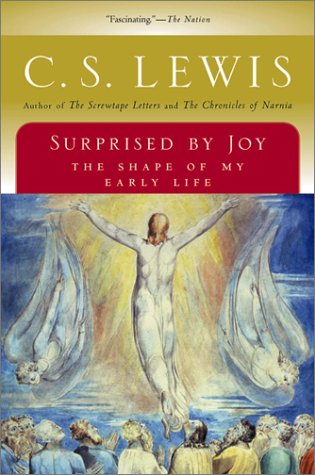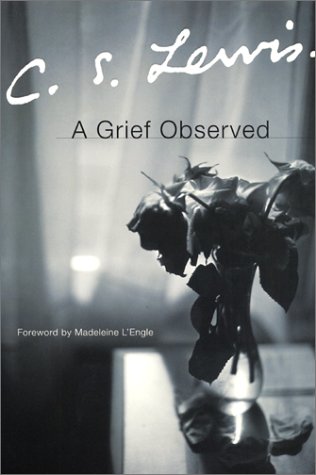Lewis says in his childhood, as he prayed for his mother to live, he approached God , or his idea of God, "without love, without awe, even without fear. He was, in my mental picture of this miracle, to appear neither Savior nor Judge, but merely as magician, "and when He had done what was required of Him I supposed He would simply - well, go away." I think this is the attitude Howard W. Hunter was talking about when he said,
"If prayer is only a spasmodic cry at the time of crisis, then it is utterly selfish, and we come to think of God as a repairman or a service agency to help us only in our emergencies."Of his father - "It is strange that having known me all my life he should have known me so little."
On prayer - "My nightly task was to produce by sheer will power a phenomenon which will power could never produce, which was so ill-defined that I could never say with absolute confidence whether it had occurred, and which, even when it did occur, was of very mediocre spiritual value." I'm pretty sure I've prayed like this before; trying to use all my imagination to conjure a picture of God to pray to.
"Spring is the inevitable image, but this was not gradual like Nature's springs. It was as if the Arctic itself, all the deep layers of secular ice, should change not in a week nor in an hour, but instantaneously, into a landscape of grass and primroses and orchards in bloom, deafened with bird songs and astir with the running water." This reminds me of the winter/spring theme in The Lion, the Witch, and the Wardrobe.
"And with that plunge back into my own past there arose at once, almost like heartbreak, the memory of Joy itself, the knowledge that I had once had what I had now lacked for years, that I was returning at last from exile and desert lands to my own country." Beautiful prose.
On writing - "I began to try to convey some of the intense excitement I was feeling, to look for expressions which would not merely state but suggest. Of course I failed, lost my prosaic clarity, spluttered, gasped, and presently fell silent; but I had learned what writing means."{emphasis added}
On myth - "Sometimes I can almost think that I was sent back to the false gods there to acquire some capacity for worship against the day when the true God should recall me to Himself. Not that I might not have learned this sooner and more safely, in ways I shall now never know, without apostasy, but that Divine punishments are also mercies, and particular good is worked out of particular evil, and the penal blindness made sanative."
On atheism - "I maintained that God did not exist. I was also very angry with God for not existing. I was equally angry with Him for creating a world."
On friendship - "Many thousands of people have had the experience of finding the first friend, and it is none the less a wonder; as great a wonder (pace the novelists) as first love, or even a greater... Nothing, I suspect, is more astonishing in any man's life than the discovery that there do exist people very, very like himself."
Lewis expresses almost the same thought in The Four Loves when he says, "Friendship is born at that moment when one person says to another: What! You too? I thought I was the only one."














No comments:
Post a Comment